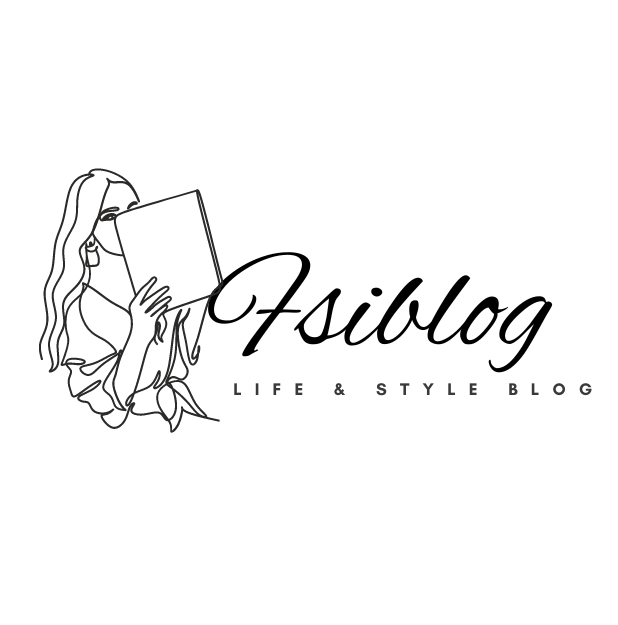Finding the right balance between comfort and style in classroom fashion is essential for anyone who spends long hours at school or college. Whether a student or a teacher, you want outfits that look good and practical for a full day of activities. As a teacher, I will help you create classroom-friendly outfits that are comfortable and stylish without sacrificing one for the other.
Why Comfort and Style Matter in the Classroom
Comfort is important because spending hours in uncomfortable clothing can distract and irritate you. However, dressing stylishly can boost your confidence and give off a positive impression. Combining these elements means you will feel at ease and look your best.
Tips for Comfort and Style
- Choose soft, breathable fabrics.
- Prioritize layering for temperature control.
- Wear well-fitted clothes, but avoid tight or restrictive pieces.
How to Choose Comfortable Fabrics
The fabric of your outfit plays a significant role in determining comfort. Cotton, jersey, and linen are breathable, flexible, and ideal for long hours.
Common Comfortable Fabrics
Fashion for the Classroom: Comfortable Yet Stylish Outfits
Finding the right balance between comfort and style in classroom fashion is essential for anyone who spends long hours at school or college. Whether you are a student or a teacher, you want outfits that look good while also being practical for a full day of activities. This guide will help you create classroom-friendly outfits that are both comfortable and stylish without sacrificing one for the other.
Why Comfort and Style Matter in the Classroom
Comfort is important because spending hours in uncomfortable clothing can make you feel distracted and irritated. However, dressing stylishly can boost your confidence and give off a positive impression. Combining these two elements means you will feel at ease and look your best.
Tips for Comfort and Style
- Choose soft, breathable fabrics.
- Prioritize layering for temperature control.
- Wear well-fitted clothes, but avoid tight or restrictive pieces.
How to Choose Comfortable Fabrics
The fabric of your outfit plays a major role in determining comfort. Fabrics like cotton, jersey, and linen are breathable, flexible, and ideal for long hours.
Common Comfortable Fabrics
| Fabric Type | Benefits | Best Uses |
|---|---|---|
| Cotton | Breathable and soft | Everyday wear, tops, and pants |
| Jersey | Stretchy and flexible | T-shirts, dresses, leggings |
| Linen | Light and cool | Warm weather outfits, tops, and skirts |
Example of Comfort-Focused Outfit
A cotton T-shirt with jersey leggings and a linen jacket is a practical and stylish combination that keeps you comfortable throughout the day.
Tips for Choosing Fabrics
- Avoid heavy, stiff fabrics for everyday outfits.
- Opt for fabrics that allow air to circulate, keeping you cool.
- Choose wrinkle-resistant fabrics if you want to avoid looking unkempt.
Layering: Practical and Stylish
Layering is an easy way to make your outfit adaptable for different temperatures. Schools and universities can often have air conditioning or heating that makes the temperature unpredictable. With layering, you can easily add or remove clothing as needed.
How to Layer Stylishly
- Start with a basic, comfortable piece like a T-shirt or blouse.
- Add a cardigan, light jacket, or vest.
- Finish with a scarf or accessory for a touch of style.
Example of a Layered Outfit
Opt for a basic cotton shirt paired with a cozy cardigan and casual jeans. You can add a scarf for colder days or remove the cardigan if it gets too warm.
Tips for Layering
- Keep the inner layer lightweight.
- Choose layers that are easy to remove without wrinkling your outfit.
- Mix textures like cotton with knits for a polished look.
Practical Footwear for the Classroom
Choosing the right footwear is crucial for a comfortable classroom experience. You’ll be on your feet for long periods, walking between classes or standing while teaching, so supportive shoes are a must.
Best Types of Shoes for Comfort
| Shoe Type | Features | Best for |
|---|---|---|
| Sneakers | Cushioned soles, breathable fabric | Walking between classes, casual days |
| Loafers | Flat or low-heeled, slip-on style | Smart-casual outfits, teaching days |
| Ankle Boots | Stylish and supportive | Colder weather, professional settings |
Tips for Choosing Shoes
- Choose footwear with padding and proper arch support for comfort.
- Avoid high heels or shoes that might cause discomfort after long wear.
- Break in new shoes before wearing them for a full day at school.
Creating Stylish Yet Practical Outfits
Being stylish in the classroom doesn’t mean you have to compromise on comfort. The secret is to craft outfits that are effortlessly stylish yet comfortable.
Examples of Stylish and Comfortable Outfits
Casual Classroom Day:
- A soft cotton T-shirt, relaxed-fit jeans, and sneakers.
- Layer a light jacket or cardigan to add a chic touch.
Smart-Casual Teaching Day:
- A well-fitted blouse, straight-leg trousers, and loafers.
- Combine a soft blazer with your outfit to achieve a professional vibe.
Warm Weather Day:
- A flowy linen dress with ankle boots.
- Add a denim jacket for an easygoing yet put-together vibe.
Tips for Styling
- Focus on simple, well-fitted pieces.
- Use accessories like scarves, belts, or jewelry to elevate basic outfits.
- Go for neutral or soft tones with one bold item for a harmonious outfit.
Building a Versatile Classroom Wardrobe
A versatile wardrobe helps you mix and match your outfits so you’re not wearing the same thing repeatedly. The idea is to have key items that you can style differently depending on the day and occasion.
Wardrobe Essentials for Classroom Fashion
| Item | Why It’s Essential | How to Style It |
|---|---|---|
| Basic T-shirts | Comfortable and versatile | Pair with jeans, skirts, or trousers |
| Blazers | Professional and stylish | Wear over dresses, shirts, or tops |
| Comfortable Jeans | Perfect for casual days | Style with sneakers or flats |
| Cardigans | Easy for layering | Layer over T-shirts or blouses |
Example of a Versatile Outfit
A basic white T-shirt, dark wash jeans, and a grey cardigan can be worn with different shoes and accessories for a range of looks, from casual to professional.
Tips for Building Your Wardrobe
- Invest in high-quality basics that will last.
- Stick to neutral colors for versatility.
- Include a mix of casual and formal pieces to cover all occasions.
Avoiding Common Fashion Mistakes in the Classroom
Even with the best intentions, there are some common mistakes to avoid when planning classroom outfits. These mistakes can lead to discomfort or a less-than-professional appearance.
Common Mistakes to Avoid
- Wearing overly tight clothing: Tight clothes can feel restrictive, especially during long hours.
- Choosing impractical footwear: Avoid heels or shoes without support that could cause foot pain.
- Over-accessorizing: While accessories can enhance an outfit, too many can make you look less professional.
Tips for Avoiding Mistakes
- Always prioritize comfort, especially when choosing shoes.
- Limit accessories to keep your look clean and refined.
- Choose the right size clothing for maximum comfort and style.
How to Plan Your Outfits Ahead of Time
Planning your outfits in advance can save time and reduce stress in the mornings. It also ensures that you can mix and match pieces to get the most out of your wardrobe.
How to Create an Outfit Plan
- Review your schedule for the week: Identify days when you need to dress more formally or more casually.
- Choose key pieces: Start with your base outfit and build around it.
- Add layers and accessories: Depending on the weather and the day’s activities, choose layers that match your base outfit.
Weekly Outfit Planner Example
| Day of the Week | Base Outfit | Layers/Accessories | Footwear |
|---|---|---|---|
| Monday | T-shirt and jeans | Cardigan, scarf | Sneakers |
| Tuesday | Blouse and trousers | Blazer | Loafers |
| Wednesday | Dress | Denim jacket | Ankle boots |
| Thursday | T-shirt and jeans | Light jacket | Sneakers |
| Friday | Blouse and skirt | Cardigan | Flats |
Tips for Planning Outfits
- Check the weather forecast before planning.
- Lay out your outfit the night before to save time in the morning.
- Choose outfits that can easily transition between different activities.
Conclusion
Creating classroom outfits that are both comfortable and stylish is easier than it seems. With a focus on comfortable fabrics, practical layering, and versatile wardrobe pieces, you can stay fashionable while feeling great throughout the day. Remember to plan your outfits ahead of time, avoid common fashion mistakes, and prioritize practicality without sacrificing your personal style.
By following these tips and examples, you’ll be able to build a wardrobe that serves you well, no matter what your day holds in the classroom.

